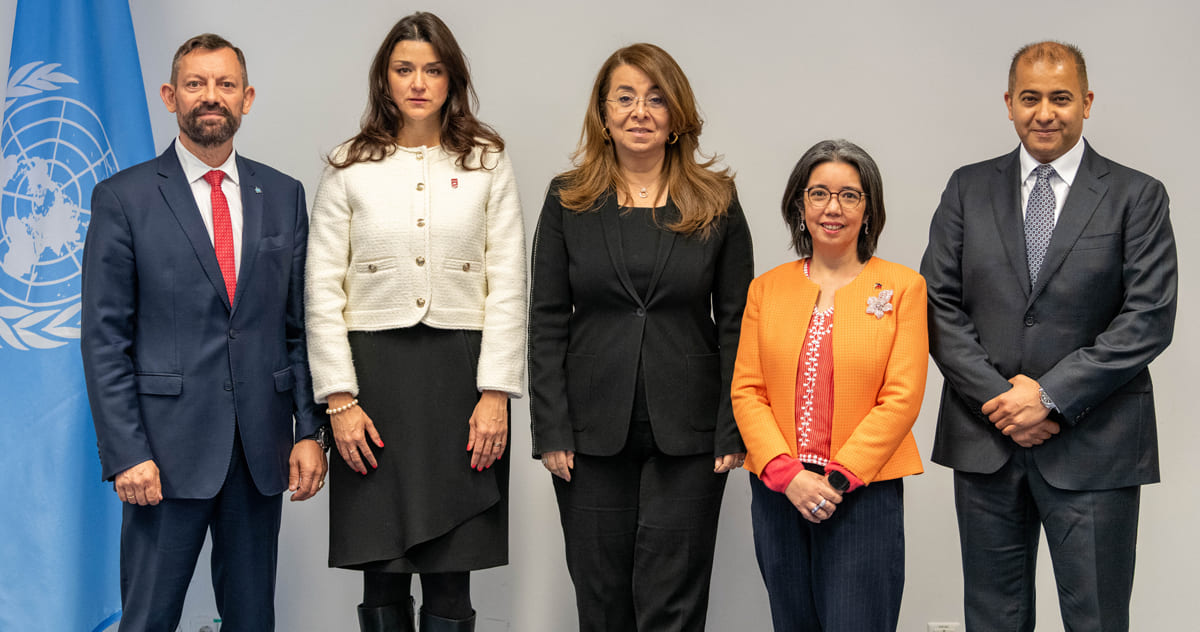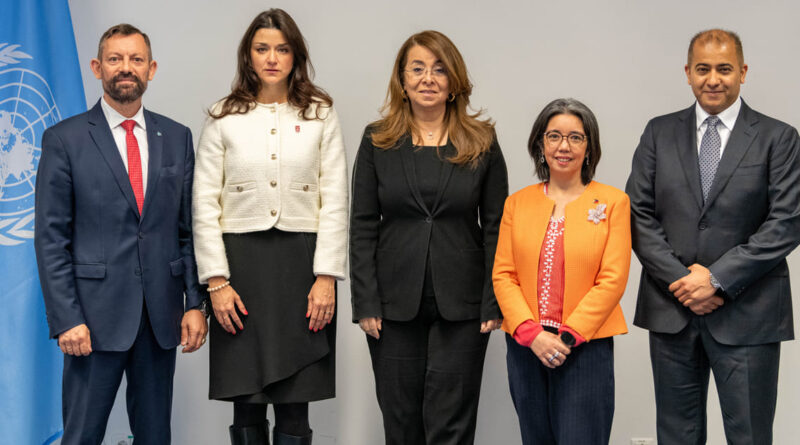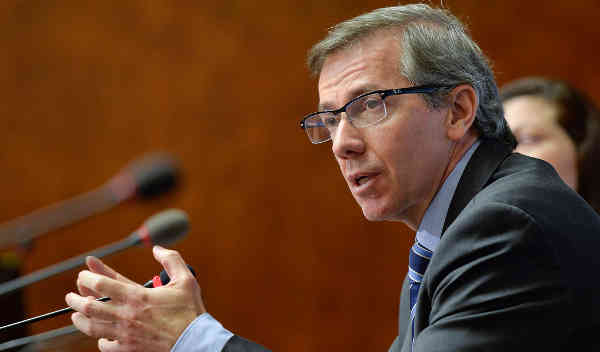Global Leaders Urge Critical Action Against Money Laundering and Terror Finance

Global Leaders Urge Critical Action Against Money Laundering and Terror Finance
From an operational standpoint, INTERPOL is enhancing international cooperation with its recently launched Silver Notice. This tool is designed to improve the speed and effectiveness of targeting criminal assets.
By RMN News Service
Vienna, Austria – Leaders from the Financial Action Task Force (FATF), INTERPOL, and the UN Office on Drugs and Crime (UNODC) issued an urgent global call for critical measures to combat money laundering and the financing of terrorism. Speaking at a high-level Side Event on the first day of the 34th Session of the Commission on Crime Prevention and Criminal Justice (CCPCJ) in Vienna, the organizations stressed the vast scale of illicit profits generated by crimes such as drug trafficking, human trafficking, migrant smuggling, and frauds. They warned that “behind every dollar laundered is a victim – a family destroyed, a life lost, a community damaged”.
The leaders emphasized that prioritizing an economic and financial crime approach is crucial for crime prevention, reducing societal harm, and ensuring financial stability and economic growth. They collectively called on governments to improve asset recovery efforts to strip organized crime and terrorist groups of their ability to expand value and territory. Furthermore, they urged enhanced international cooperation to make financial investigations more targeted and effective.
This call aligns with previous calls from finance ministers for greater efforts to fight crime and terrorism by cutting off their profits. The FATF, which serves as the global watchdog on illicit finance for over 200 jurisdictions, has responded by tightening its standards for asset recovery. However, assessments by the FATF Global Network reveal a significant challenge: almost 80% of countries—more than 200—are at a low or moderate level of effectiveness in asset recovery.
UNODC Executive Director Ghada Waly described the situation as “a call to action to define innovative and scalable solutions to combat economic crime”. She urged collaborative efforts through partnerships, utilizing the current CCPCJ session and the upcoming 15th UN Crime Congress in 2026 to “accelerate collective responses against criminal and terrorist financing to ensure our financial systems are drivers of peace, security and prosperity”.
[ RMN News Exclusive: IMF Silent on India’s Terror Allegations Against Pakistan ]
FATF President Elisa de Anda Madrazo highlighted FATF’s commitment to providing countries with tools and an international forum to tackle these shared challenges, noting this is “critical to financial stability, development, peace and security”. She cautioned that global defenses against illicit finance are only as strong as their weakest link, sounding an alarm for all countries to work together against complex, transnational threats. “We cannot let crime thrive,” she added.
From an operational standpoint, INTERPOL is enhancing international cooperation with its recently launched Silver Notice. This tool is designed to improve the speed and effectiveness of targeting criminal assets, and currently, 51 countries in the pilot program have indicated they will use it to request information on assets globally. INTERPOL Acting Executive Director of Police Services Cyril Gout stated that illicit finance is not merely one threat but the “enabler of them all,” explaining INTERPOL’s focus on developing innovative tools for international law enforcement cooperation against illicit financial flows. He proudly noted INTERPOL serves as “a bridge between international commitments and national action”.
The three leaders highlighted recent collaborative work focused on developing practical tools for practitioners to significantly improve their capability to work across jurisdictional lines. As FATF President Elisa de Anda Madrazo pointed out, “Criminals do not confine themselves within national borders, so we need to ensure that our borders do not provide opportunities for criminals to hide money and frustrate our pursuit of them”.
Later this year, the three organizations, in collaboration with the Egmont Group of Financial Intelligence Units, plan to release practical guidance for practitioners on key avenues of international collaboration.
The leaders also stressed the strengthening of FATF’s international standards on anti-money laundering and terrorism financing. They called for accelerated progress in cross-border cooperation and capacity building ahead of the UN 2026 Crime Congress. Hosted by the United Arab Emirates, the 15th UN Crime Congress in Abu Dhabi, scheduled for 25 – 30 April 2026, will provide Member States a crucial opportunity to address these difficult issues and commit to scalable, innovative responses to financial crime.
Positive developments include Member States increasingly working with the private sector and civil society on joint approaches. The acceleration of operational work through public-private partnerships and task forces was also welcomed. High-level participants at the Vienna event specifically discussed critical steps for Member States, including capacity building, effective implementation of the risk-based approach, public-private partnerships, and innovating through new technologies.
Courtesy: UNODC
💛 Support Independent Journalism
If you find RMN News useful, please consider supporting us.




